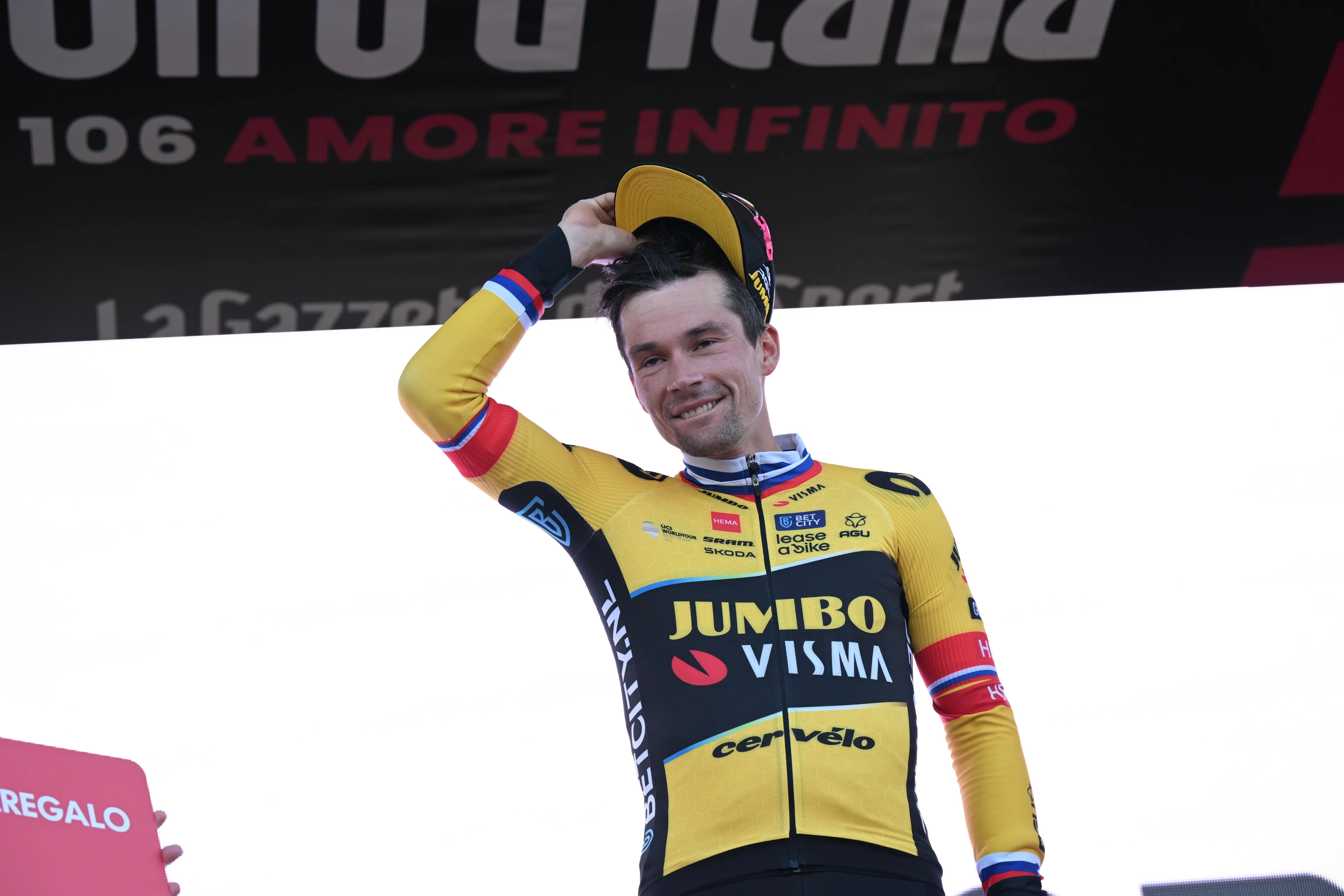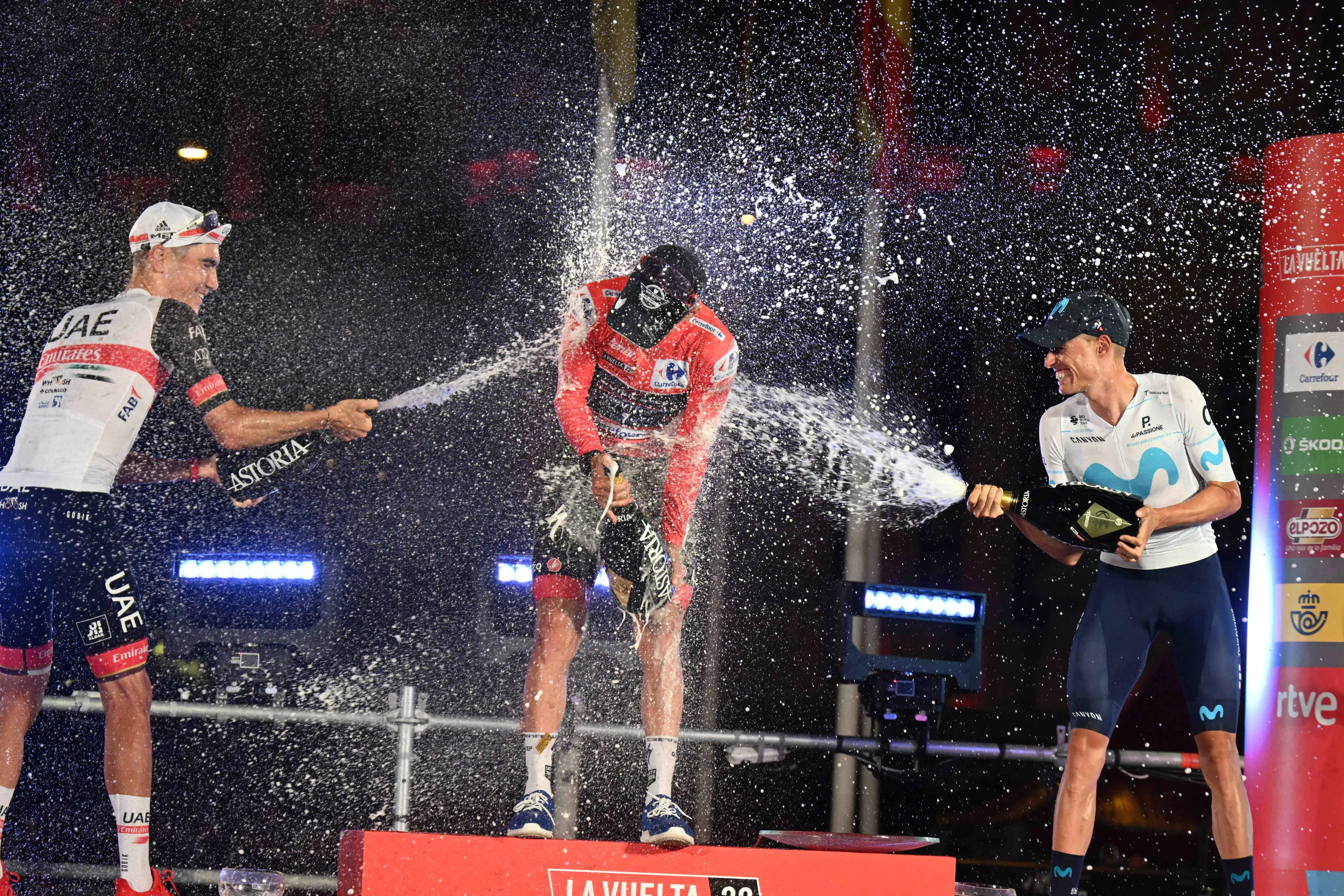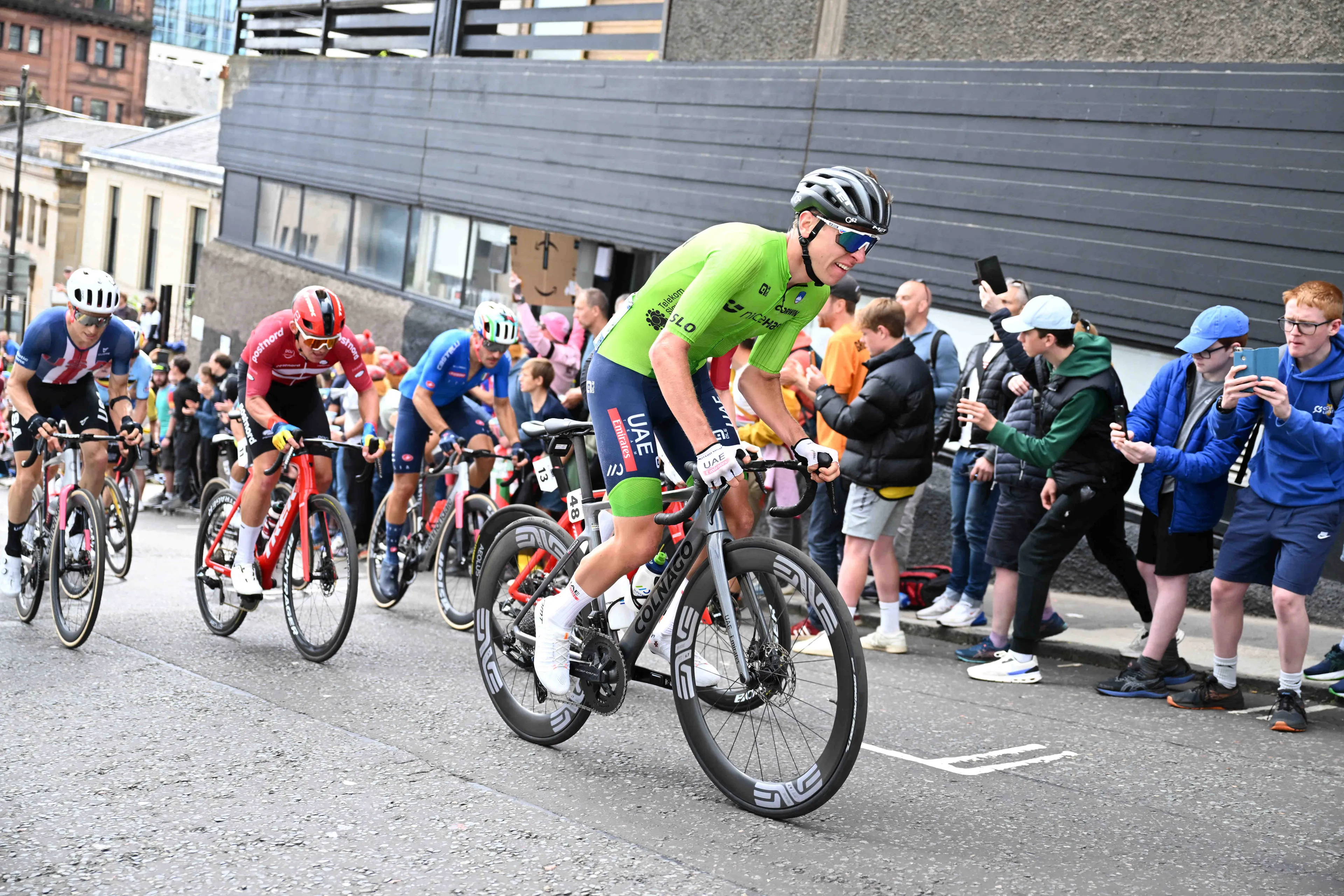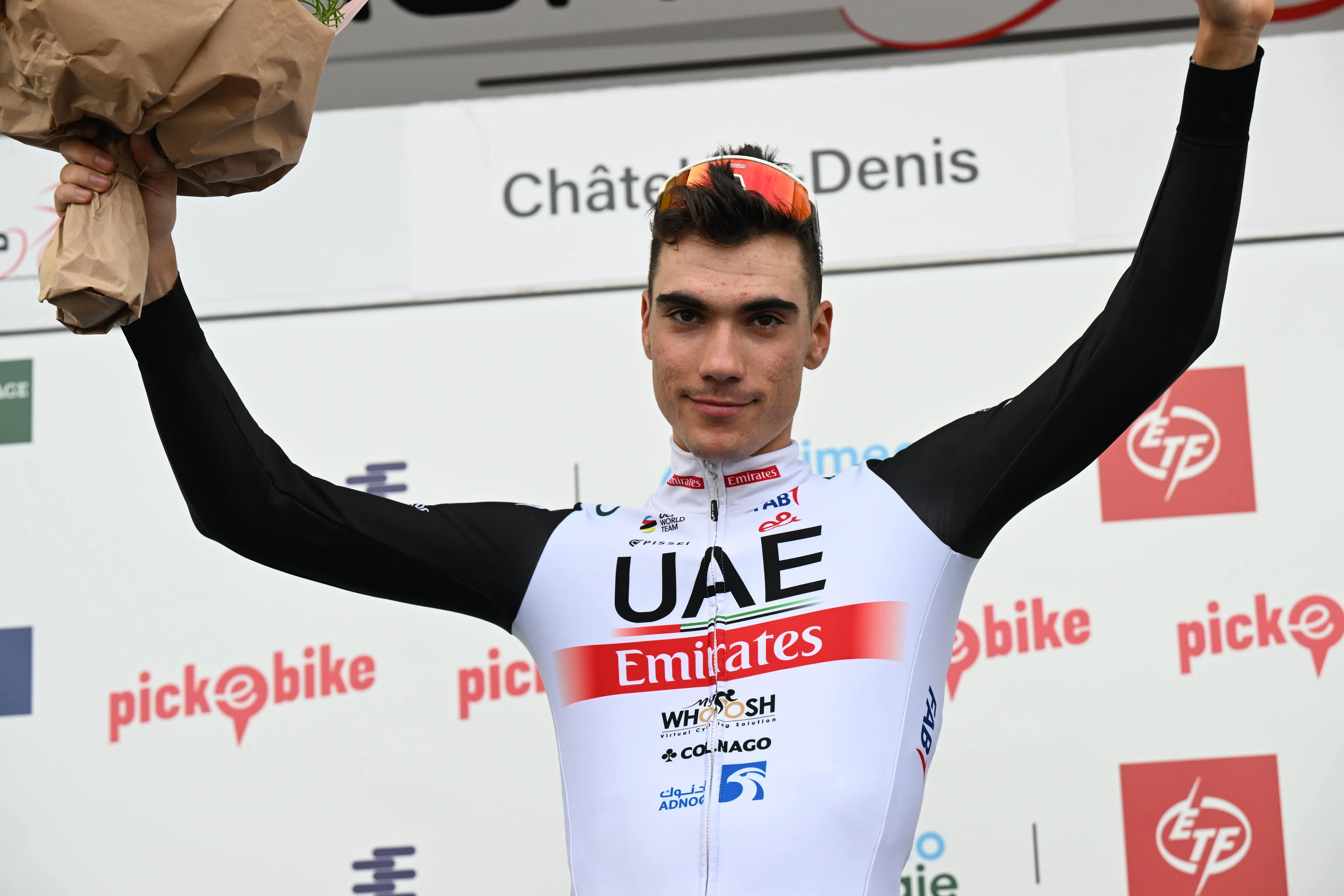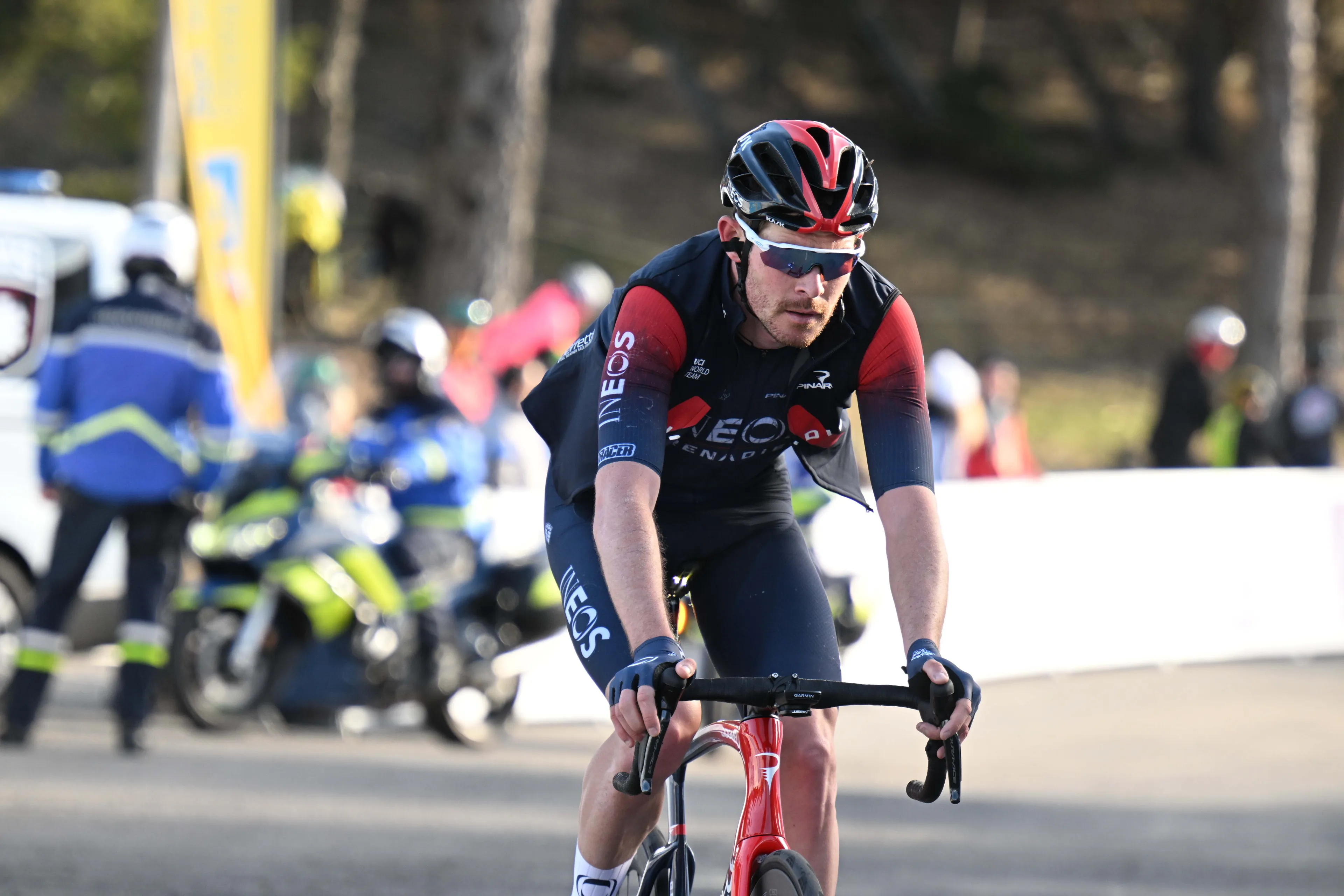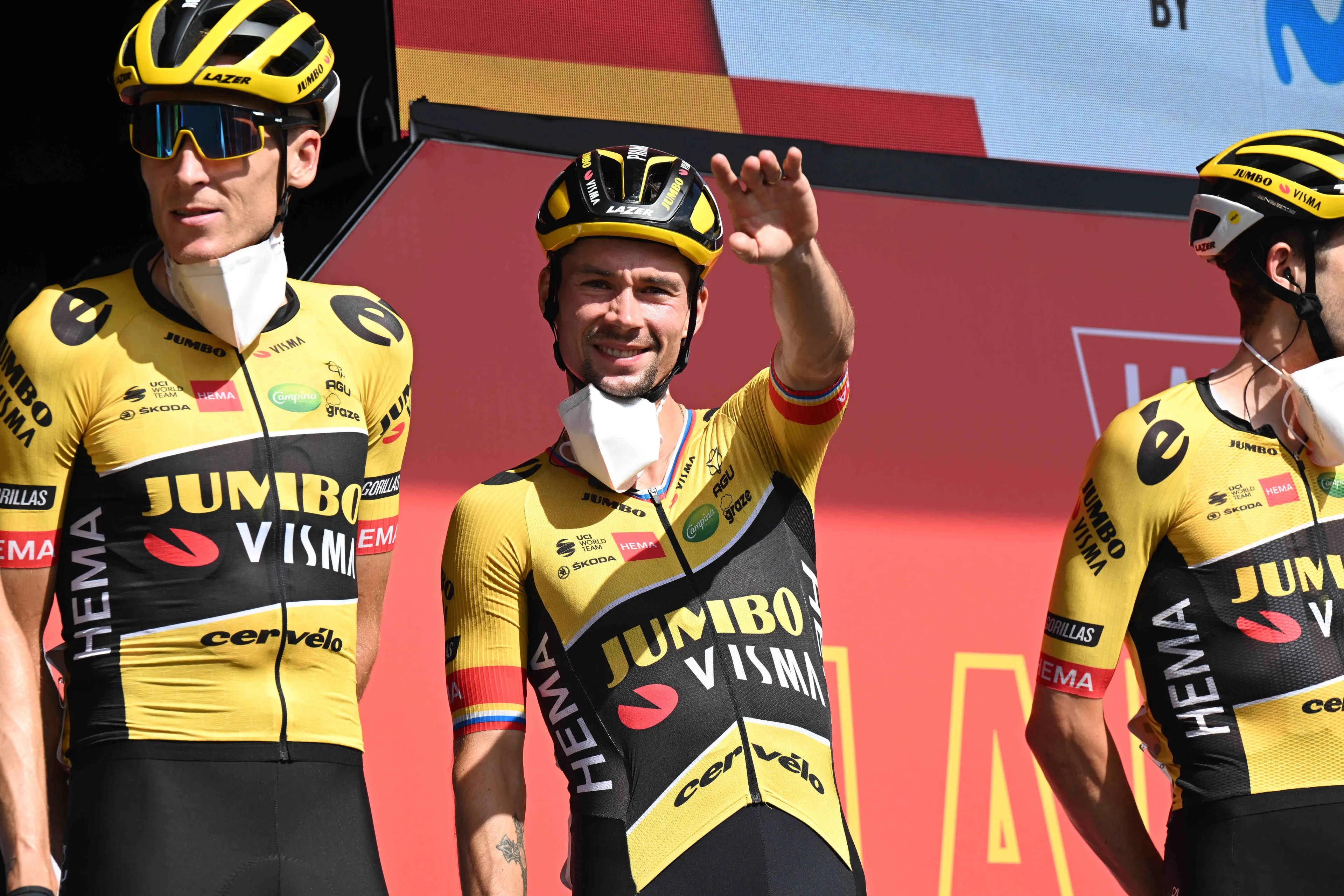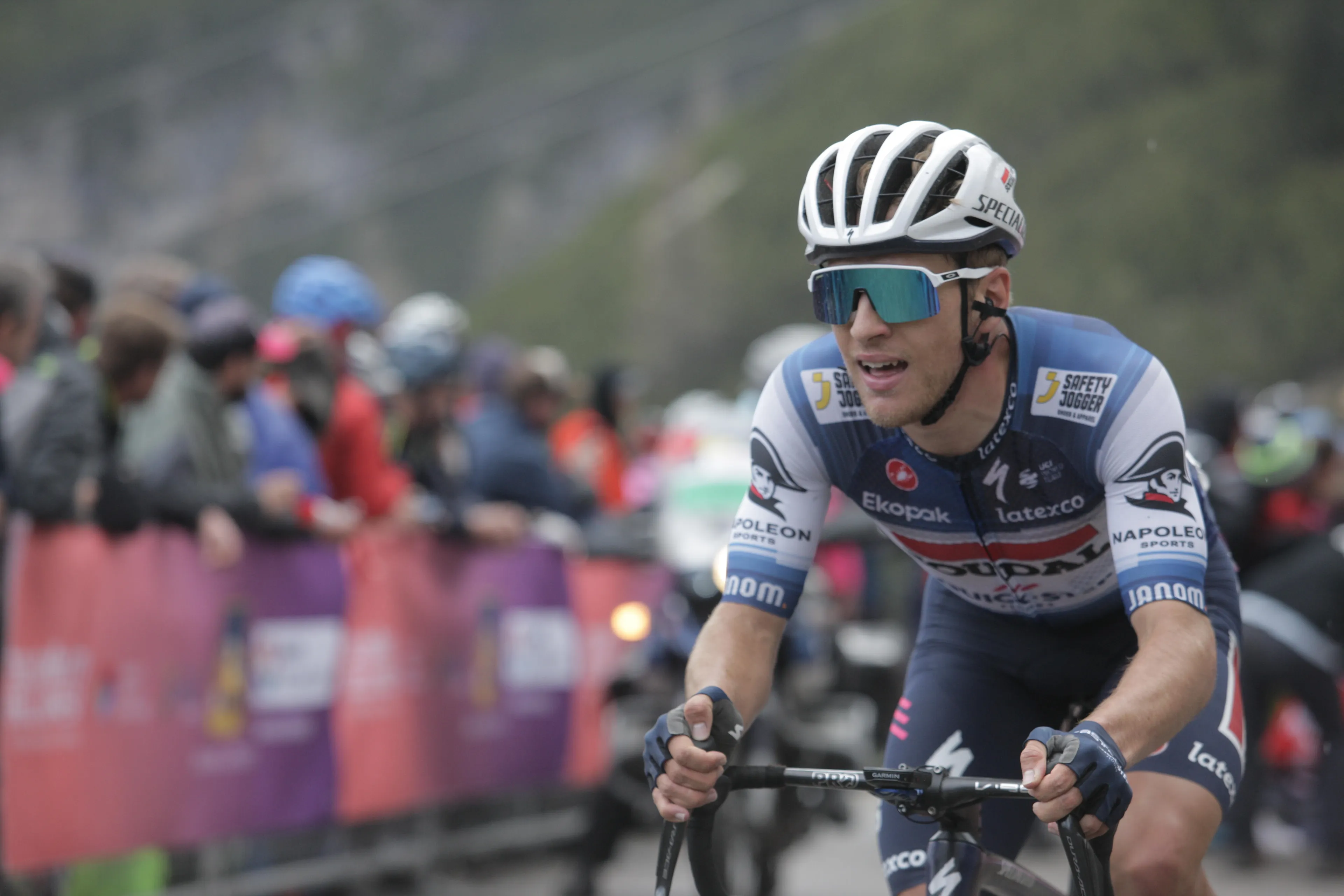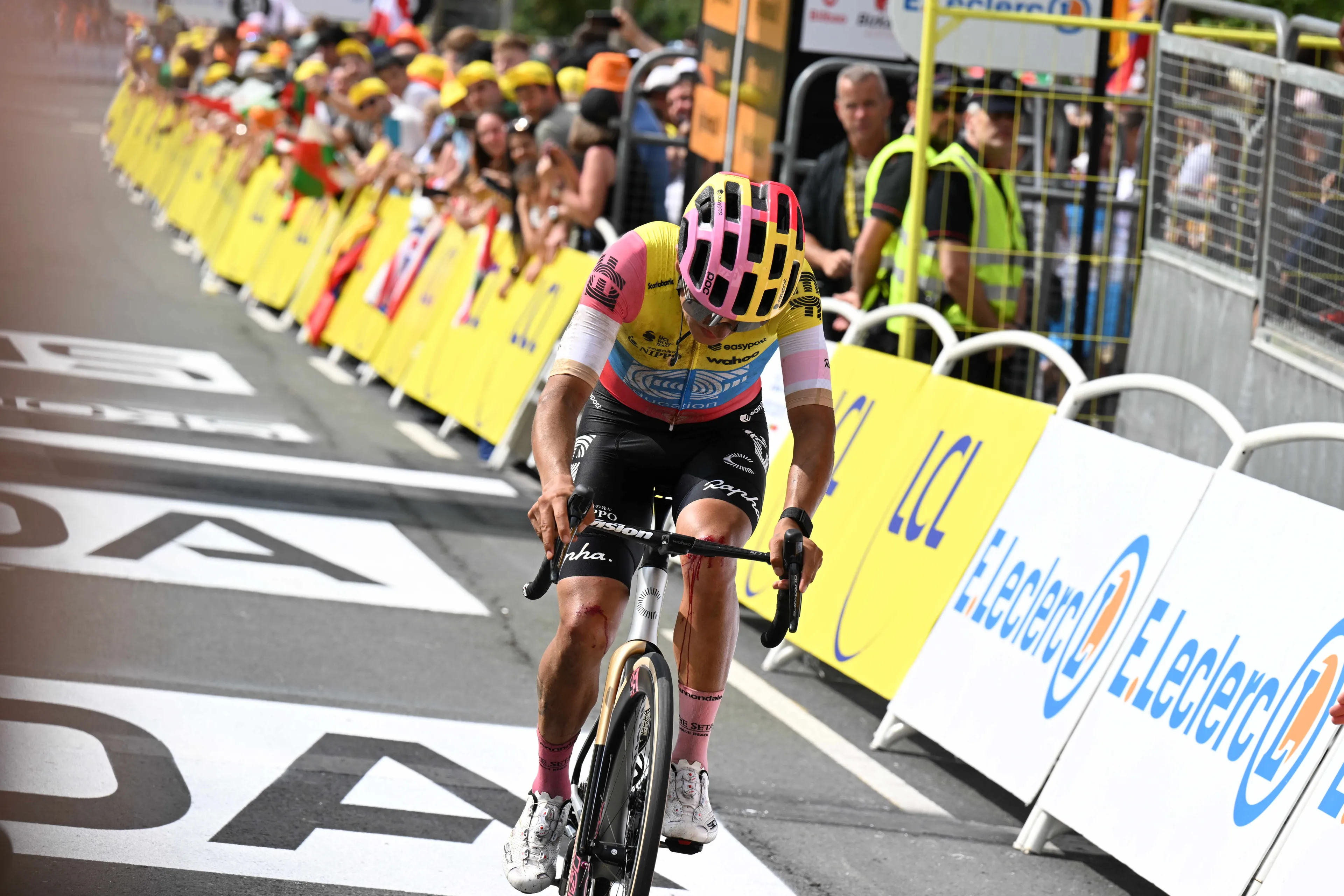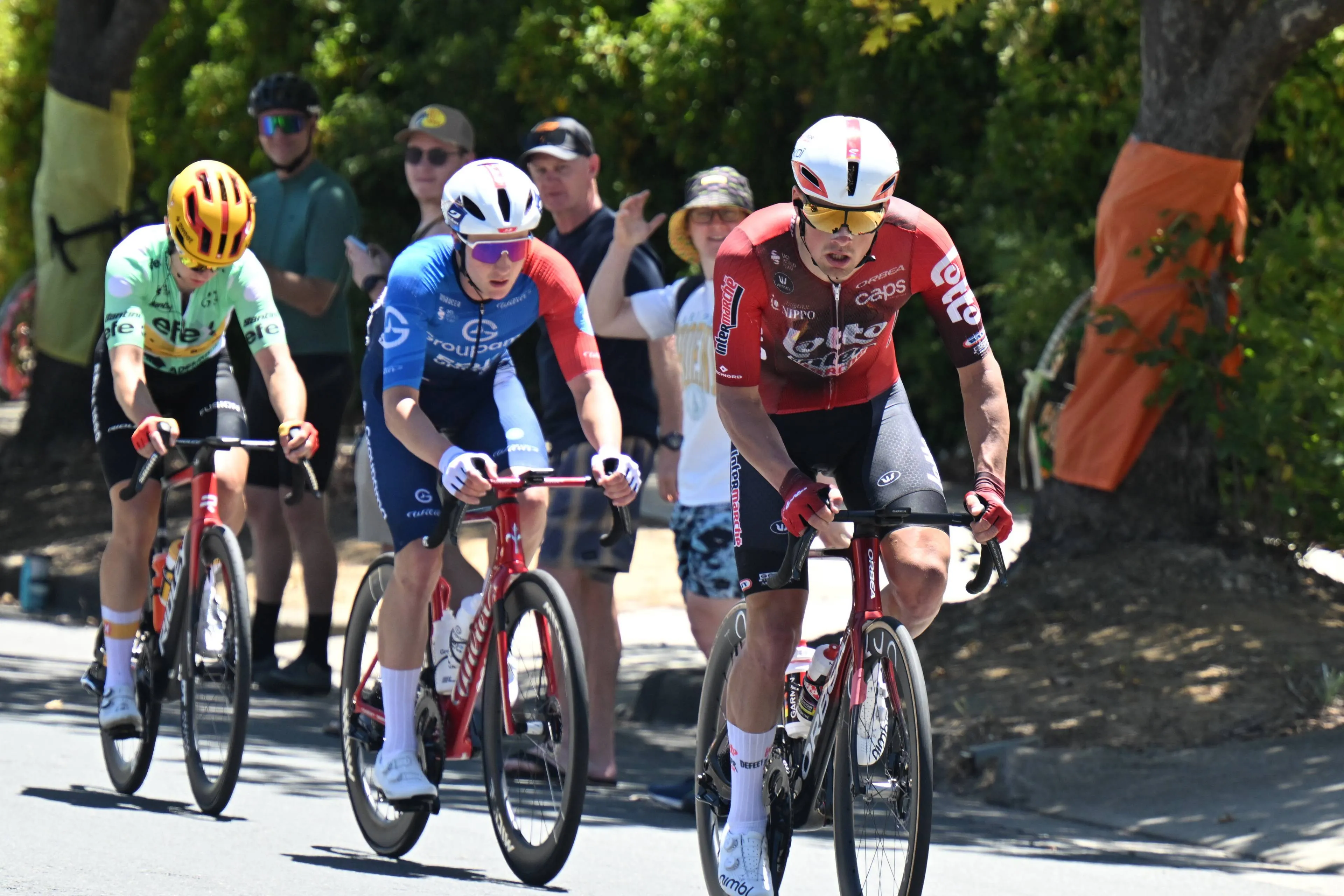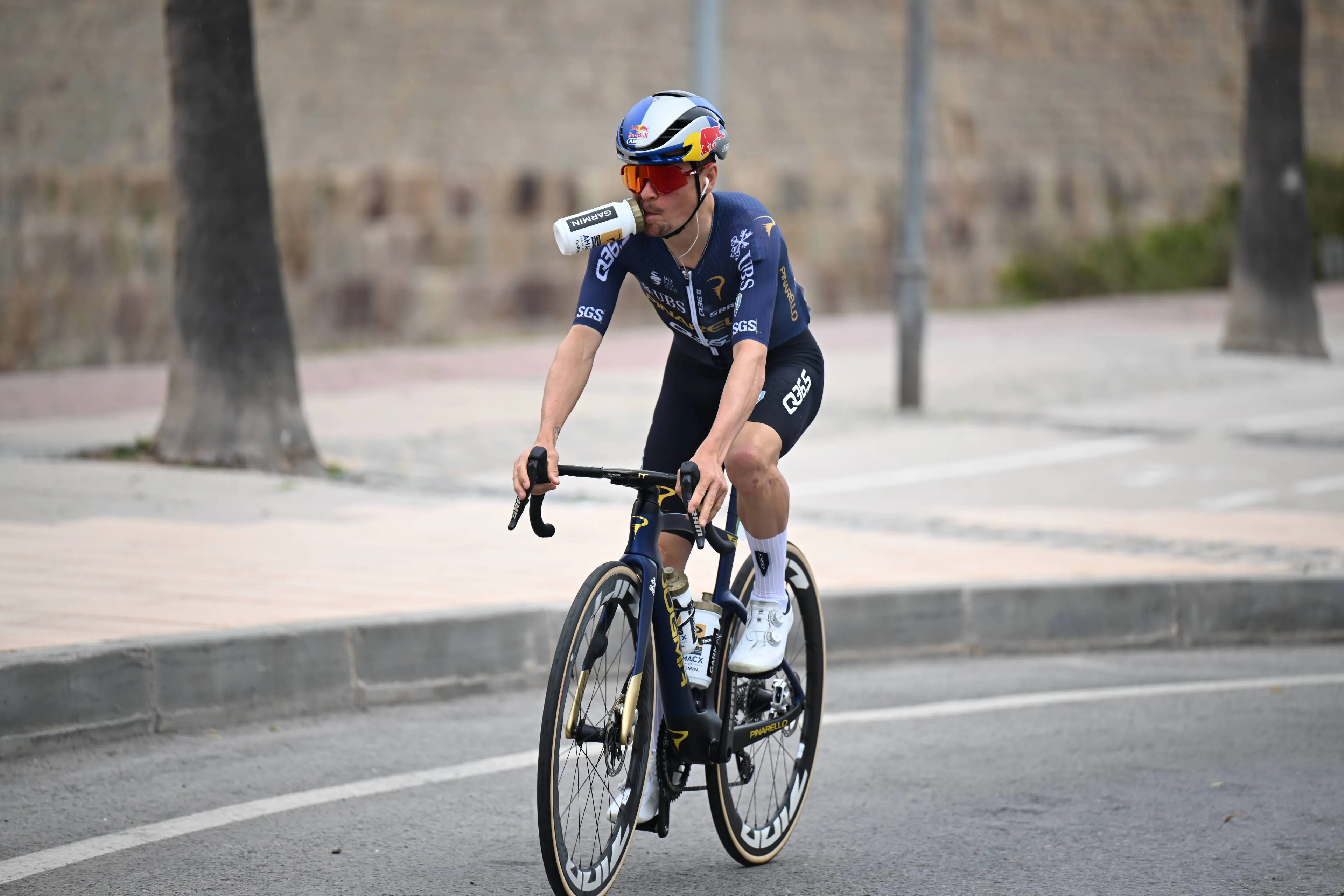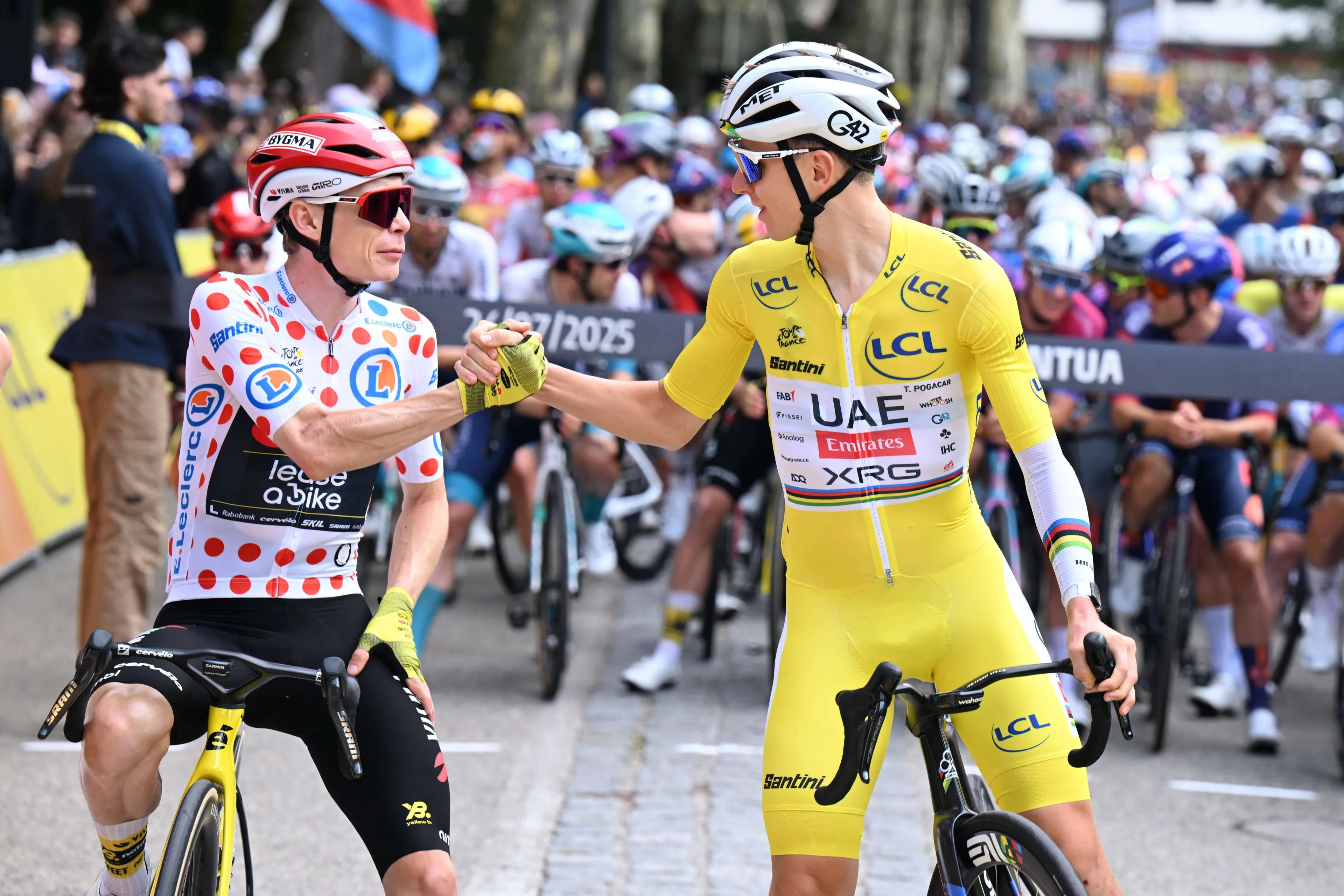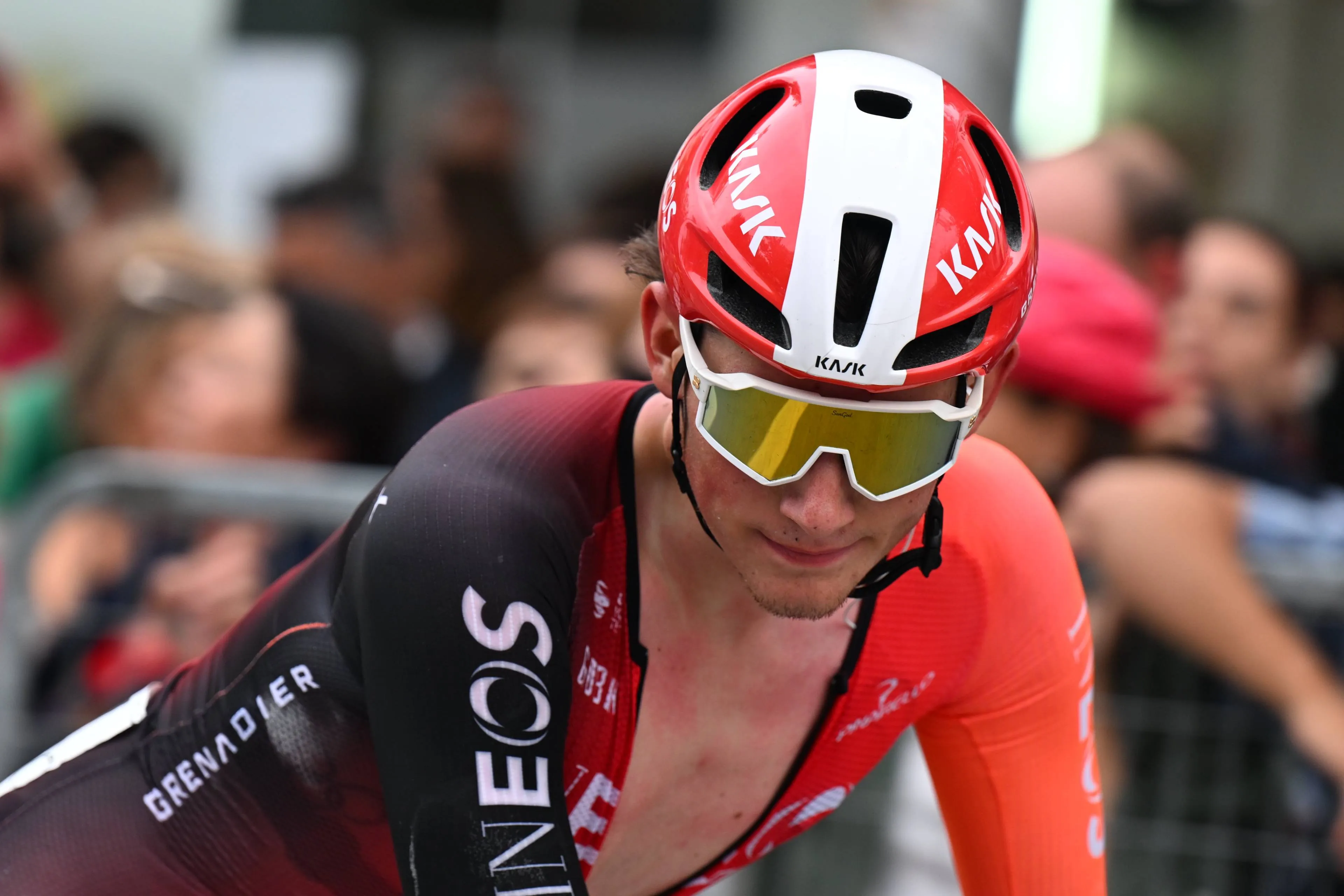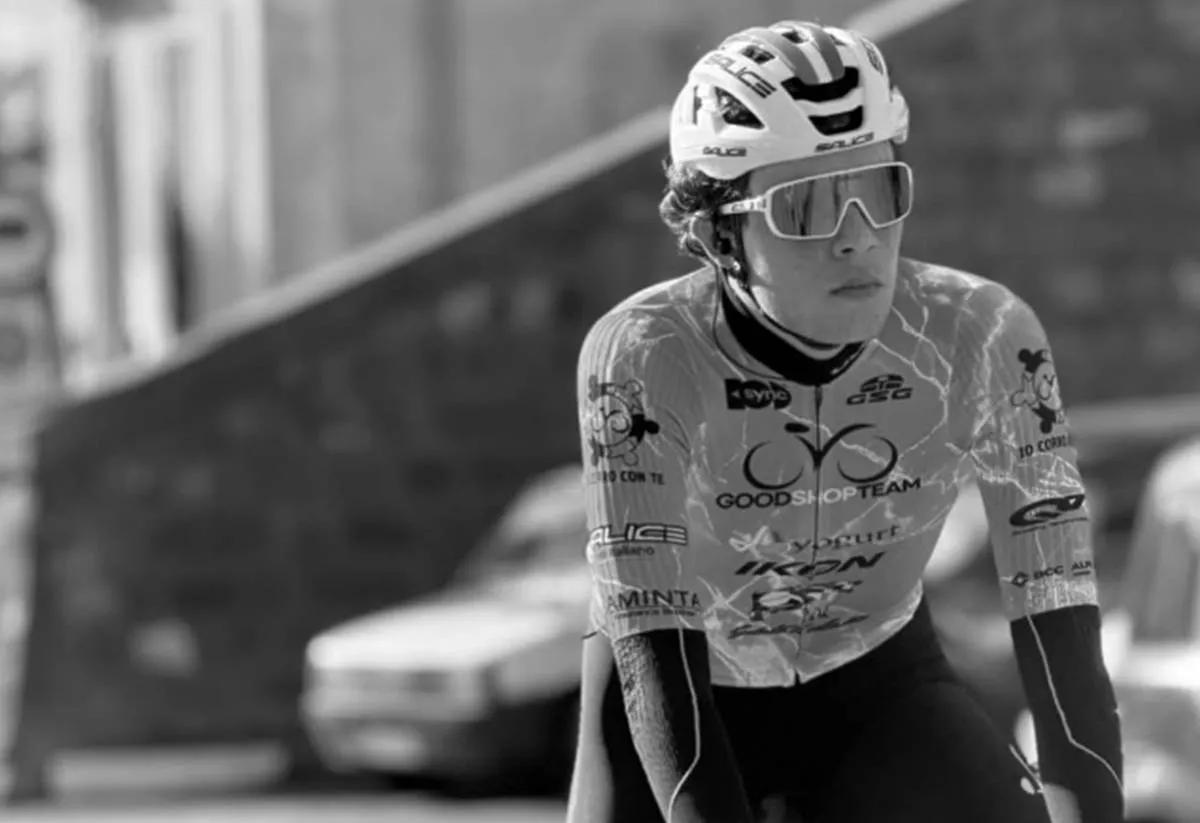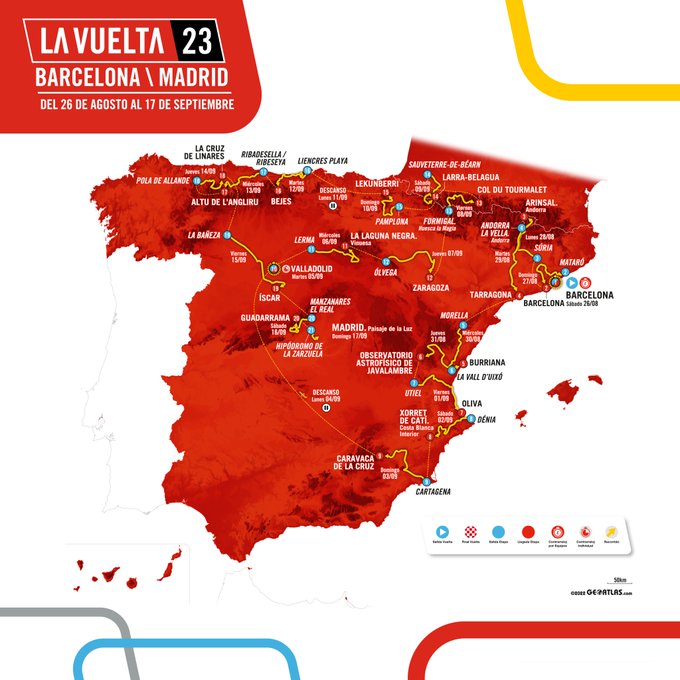PREVIEW | Vuelta a Espana 2023 - Evenepoel faces Roglic and Vingegaard; Angliru headlines brutal mountainous route
CyclingSaturday, 26 August 2023 at 14:51
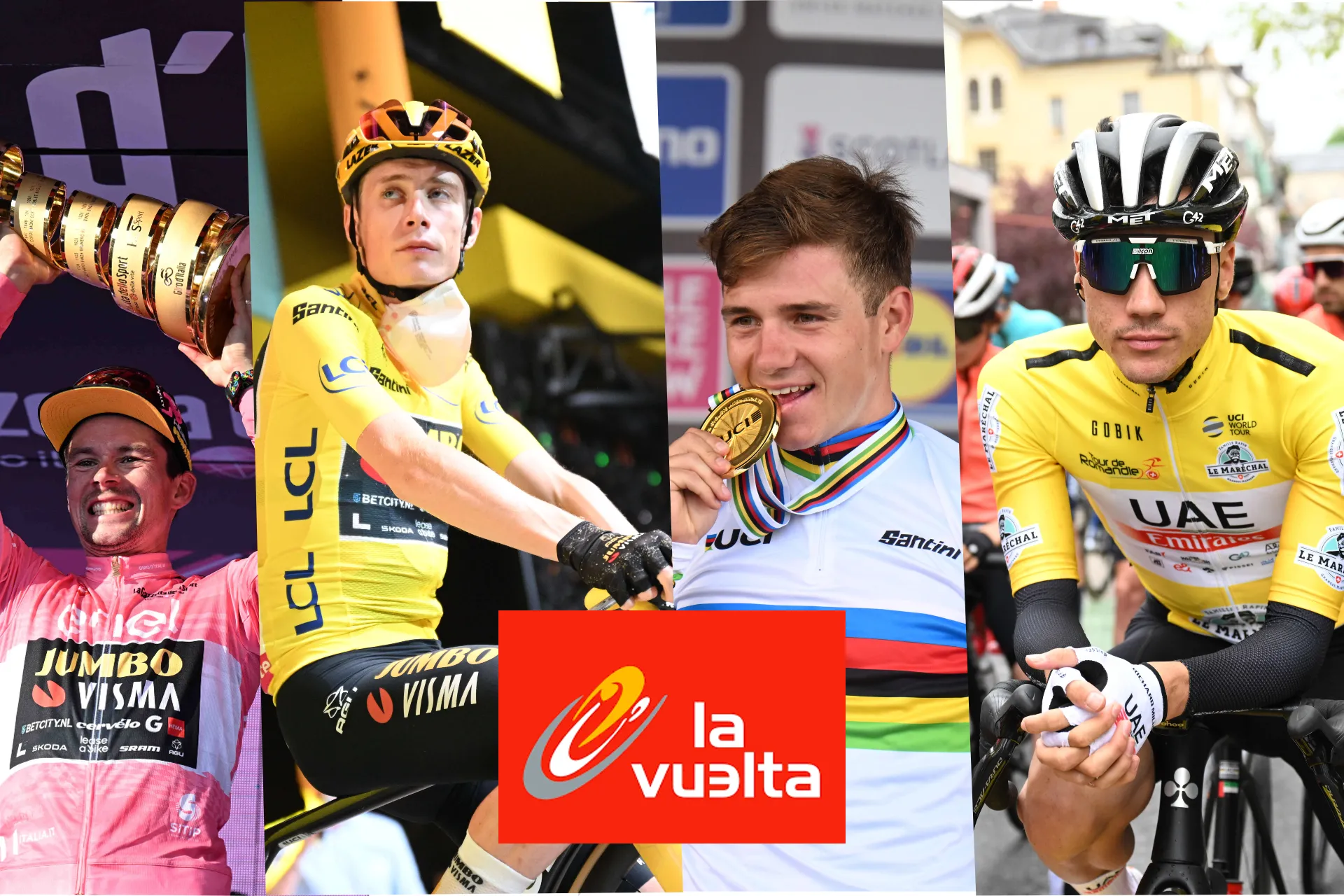
Preview. The 2023 Vuelta a Espana will be taking place from the 26th of August to the 17th of September 2023. The Spanish Grand Tour is the final one of the season, one that consistently delivers a balanced mix of mountainous, hilly and flat stages, always giving opportunity aswell to the time-trialist, and those who are resorting to the Vuelta for their final big chances of the year to take a prestigious win.
The race will start with a 14.9-kilometer long team time-trial in Barcelona starting at the Olympic port. It will create some small differences and make for a spectacular start to the race in the capital of the Catalunya region. Stage two will be similar to that of the 2012 stage where Philippe Gilbert and Joaquim Rodriguez blasted away from the peloton. It's a hilly day, however not overly hard. The challenges will come as the riders return to Barcelona and will face the short but explosive hilltop of the Alto de Montjuic. The stage will end right after by the Olympic stadium.
Read also
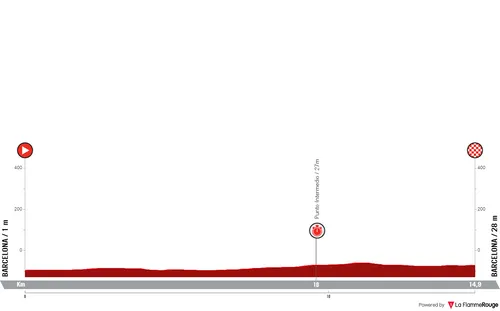
Stage 1 (TTT): Barcelona - Barcelona, 14.6 kilometers
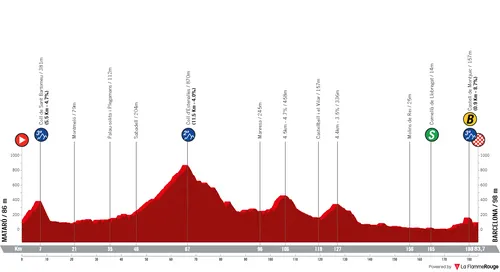
Stage 2: Mataró - Barcelona, 181.3 kilometers
There is absolutely no time to settle in. Stage three will see the riders head north towards Andorra where they will find the first summit finish of the race. It is a high-mountain stage. After entering the microstate the riders will go up two ascents and finish in Arinsal where the first big selection should be made. On the fourth day of racing however the riders return to the coast. It will be a fast ride back into Tarragona near Barcelona, with the route having a slight downhill tilt, however with a couple of hilltops towards the finish that won't make life easy for the sprinters.
Stage five from Morella to Burriana is a tricky one. A day for the sprinters on paper however, as is classic at the Vuelta a Espana, it features the 'rompe-piernas' terrain which will throughout the day benefit attackers and make the pure fast men suffer in the small but repetitive climbs. On the sixth day of racing the riders ride into a familiar sight for the second summit finish of the race. It will be at the Observatorio Astrofisico de Javalambre where the finish line will be positioned, with it's 12 kilometers at 7% providing terrain for differences to be made amongst the GC men.
Read also
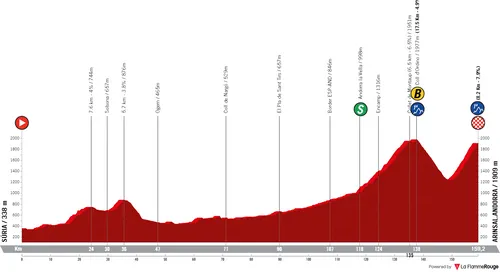
Stage 3: Súria - Arinsal. Andorra, 158.5 kilometers
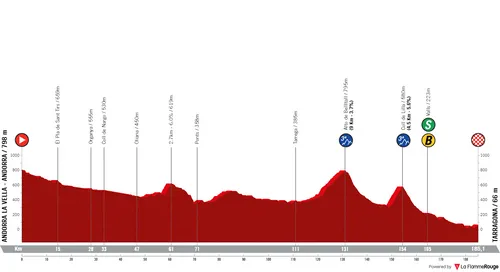
Stage 4: Andorra la Vella - Tarragona, 183.4 kilometers
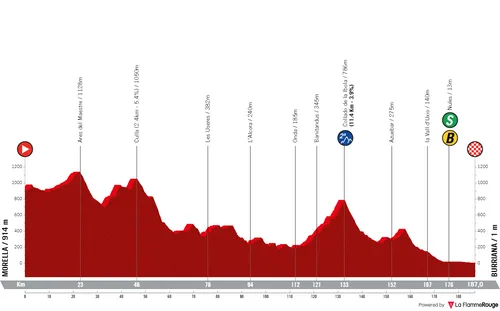
Stage 5: Morella - Burriana, 185.7 kilometers
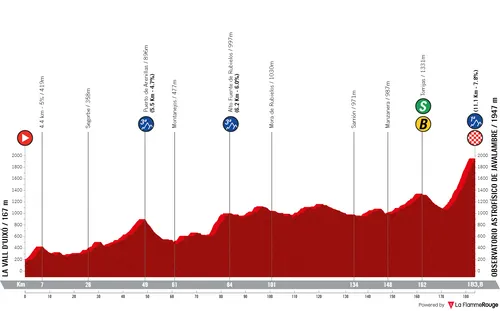
Stage 6: La Vall d'Uixó - Observatorio Astrofísico de Javalambre, 181.3 kilometers
Stage seven will be a good sight for the peloton who find a flat stage. The first half of the day will largely be downhill which means the peloton can't afford to give the breakaway much of a gap, but the run-in to Oliva will be pan-flat. In cycling country, the riders set off from Dénia on the eighth stage where many had their team training camps early in the year. However what follows is certainly harder, with five categorized climbs and many more en route to Xorret de Catí, where the steep gradients will see further damage done in the GC fight.
Stage nine, the final day of the first week, doesn't show any mercy for those who dislike climbing. It is a hilly stage, likely one for the breakaway, as the riders tackle an interesting finale in Caravaca de la Cruz. The riders head into the second week of racing with the only individual time-trial of the race taking place. This will be in the city of Valladolid where the 25 kilometers against the clock will be a key challenge for those eyeing the red jersey on stage 10.
Read also

Stage 7: Utiel - Oliva, 188.8 kilometers
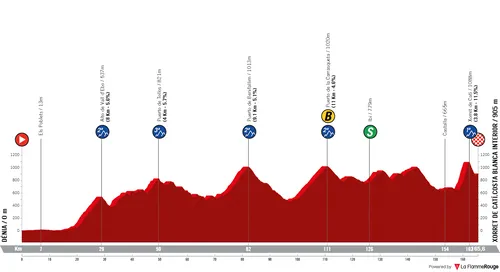
Stage 8: Dénia - Xorret de Catí. Costa Blanca Interior, 164.8 kilometers

Stage 9: Cartagena - Caravaca de la Cruz, 180.9 kilometers
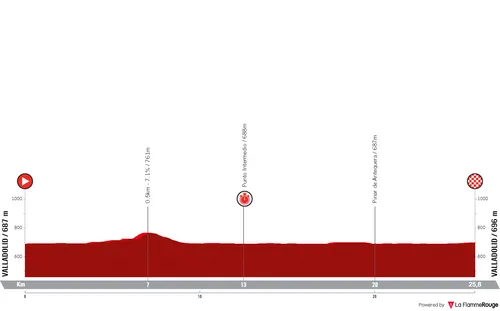
Stage 10 (ITT): Valladolid - Valladolid, 25 kilometers
Very similar to the ninth day of racing, stage 11 is a complicated day due mostly due to it's finale. It's a stage that features little climbing but has a slight summit finish. This time in Burgos at La Laguna Negra, it's an explosive finale where several can contest the win. Stage 12 will be one of the brief but valuable opportunities for the pure sprinters. The day sees the riders go through 165 kilometers eastwards towards Zaragoza for a virtually inevitable bunch sprint.
The queen stage? Some were queen to call it that. Stage 13 was one that had been highly rumoured and turned out to be exactly as expected as the race heads into the Pyrenees, with a mammoth mountain stage. Not by size, as it extends over only 134 kilometers, but they are constantly up and down. The riders will go up the Col d'Aubisque and Col de Spandelles which individually are both very hard ascents, before the summit finish at the Col du Tourmalet above 2000 meters of altitude.
Read also
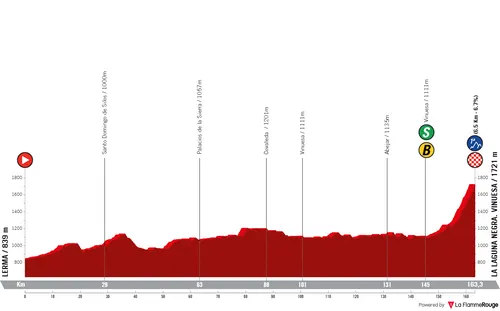
Stage 11: Lerma - La Laguna Negra. Vinuesa, 163.2 kilometers

Stage 12: Ólvega - Zaragoza, 165.4 kilometers
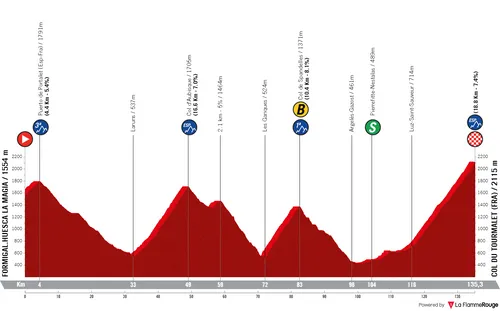
Stage 13: Formigal. Huesca la Magia - Col du Tourmalet, 134.7 kilometers
However, things don't get any easier after. The peloton will leave the Pyrenees, but not before another incredibly hard mountain challenge. Stage 14 from Sauvaterre-de-Béarn and Belagua will feature the Col Hourciére and the Port de Larrau in quick succession, both HC category climbs into the Spanish border. The stage will still see a first category summit finish at Belagua to wrap a very hard day. Stage 15 will be a hilly and explosive day, fit for the puncheurs and classics riders. The finale will be in Lekunberri after the riders take on the double ascent of the Puerto de Zuarrarrate.
Stage 16 will be a very short day through the rugged Spanish north, with a brutal summit finish. It is a very untraditional stage format, but the day will be decided in the ascent to Bejes where the gradients will reach up often above 10% for almost five kilometers. Stage 17 will be a brute, and an absolutely mythical day of climbing. The Asturian monster of 2023, the riders will be climbing the Alto de la Colladiella and the Alto der Cordal - both first category climbs - before directly riding up the Alto de l'Angliru for a summit finish. Almost 13 kilometers at 10% with several ramps over 20% will make for very large differences.
Read also
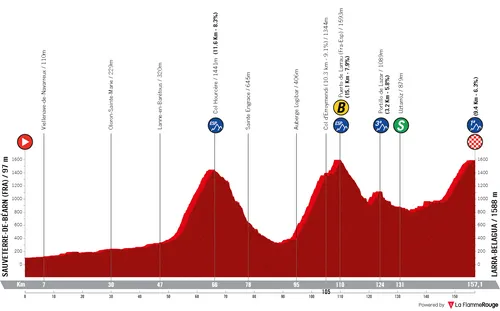
Stage 14: Sauvaterre-de-B´´earn - Larra-Belagua, 161.7 kilometers
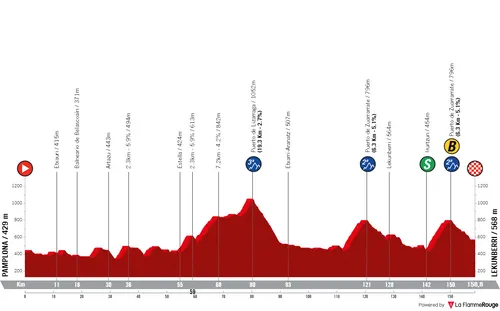
Stage 15: Pamplona - Lekunberri, 156.5 kilometers

Stage 16: Liencres Playa - Bejes, 119.7 kilometers
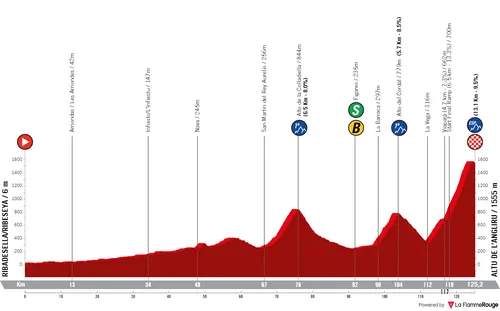
Stage 17: Tibadesella/Ribeseya - Alto de l'Angliru, 122.6 kilometers
Stage 18 will be easier, naturally, but a very hard day in itself. In fact it's a proper high mountain day with three first category climbs among others. The finale will be atop the Puerto de la Cruz de Linares which the riders will be riding up on two different occasions with 8.5 kilometers at 8%. A transition stage. The 19th day of racing at the Vuelta a Espana will see the riders race from La Bañeza to Íscar on what is a perfect day for the sprinters. The race finally reaches it's end, into Madrid. A short flat day with no difficulties, it will be a big reward for the fast men who've survived a brutal race to make it into Madrid.
The final day of competitive racing. The Vuelta a Espana has once again surpassed itself in what has proven to be a very popular profile amongst fans. The day will not feature a single long ascent, but will be riddled with climbs throughout a whole 208 kilometers. It will be in the Sierra de Guadarrama that the race will be decided as the riders take on 10 categorized climbs and several others where the climbers may be out of their comfort zone and lose it all.
Read also
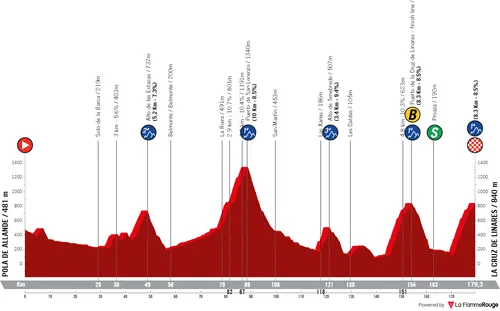
Stage 18: Pola de Allande - La Cruz de Linares, 178.9 kilometers
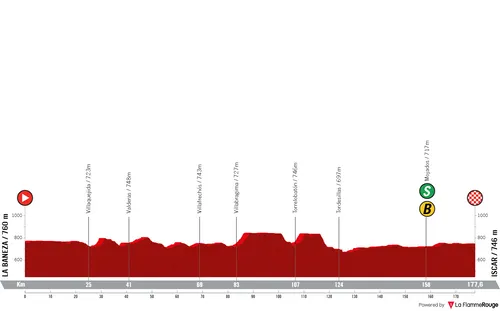
Stage 19: La Bañeza - Íscar, 177.4 kilometers
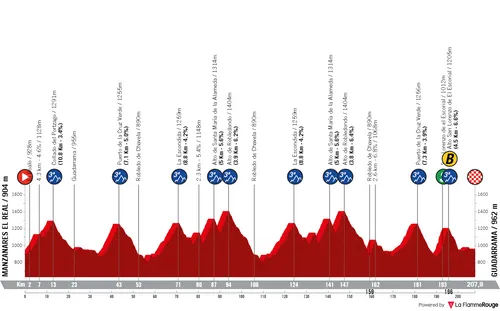
Stage 20: Manzanares El Real - Guadarrama, 208.4 kilometers
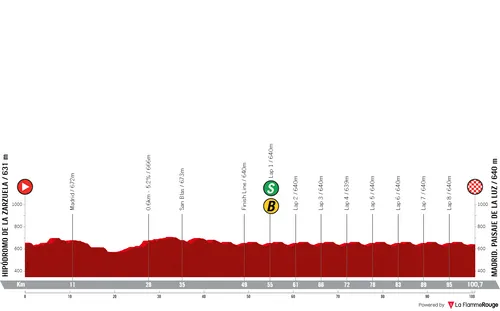
Stage 21: Hipódromo de la Zarzuela - Madrid. Paisaje de la Luz, 101 kilometers
The Favourites
*Note: The preview may be updated once the startlist is final.
Jumbo-Visma - Jumbo are ready. They want a third Grand Tour win and in my eyes they're the favourites. Primoz Roglic is motivated, relaxed, and in great form as seen in Burgos where he won the GC and both mountain stages. The Dutch team know how to prepare a Grand Tour perfectly. Tratnik, Valter, van Baarle, Kelderman and Gesink are each very strong and experienced domestiques and will keep the leaders out of trouble. Sepp Kuss comes in for his third Grand Tour of the year but this was certainly planned and if he was selected it is because he's healthy and in form, will deter rival attacks in the mountains if Jumbo is in the lead.
But then there is the wildcard which is Jonas Vingegaard. Also having in mind the Vuelta when preparing for the Tour, he will hit the race with good form. I don't expect a level as high, but a Vingegaard at 90% is able to take the victory here. He's a co-leader, the team will surely eye Roglic more as Vingegaard came in with much more relaxed and modest preparation, but once the race hits the mountains it'll become clear if he is also in the true fight for red as well. In the high mountains this lineup will be a nightmare for rivals.
Remco Evenepoel - The big question will be his team. Quick-Step hasn't yet been able to reinforce itself meaningfully, but most importantly he will lack Ilan van Wilder, who is racing elsewhere. This is an unexpected and big blow for the Belgian, as van Wilder was strong and consistent throughout all the Giro and is his right-hand man. Evenepoel has a few riders such as Jan Hirt, James Knox and Mattia Cattaneo to support him in the mountains, it's small for such competition... Although the Vuelta features several stages where the attacks should be only in one ascent where it won't be a hit for him, with Jumbo-Visma, UAE Team Emirates and INEOS Grenadiers having several great climbers, they have the option to smash Quick-Step early on multi-mountain days.
As for Evenepoel however he should have good form, I trust. The preparation was similar to last year, he won the Clásica San Sebastián and then the time-trial Worlds. His good form was prolonged for a week because of the Glasgow road race, which is not ideal, but last year he was sharp all the way into the finish showing that he does have good recovery skills. The one-effort stages will suit him very well, but in the high mountains I reckon that handling rivals teams - as well as possible monster performances from Vingegaard or Ayuso - will make life hard for him.
Read also
UAE Team Emirates - Within UAE I don't expect Juan Ayuso or João Almeida to sacrifice themselves for each other, unless one is leading the race deep into it's end or one completely misses the GC. The team want UCI points and they haven't really collaborated in the past. This is not ideal, it's not an homogenous block as is Jumbo who also have two leaders, but a team where ambitions are more individual. The presence of Molano to sprint is a sign they'll chase victories elsewhere and use leadout to protect him, lowering focus on the flat days for it's leaders.
Marc Soler and Jay Vine (if he does not aim for GC) will still be great climbing domestiques likely. The latter may be given freedom to chase stage wins, but in a supporting role they can match the strongest teams likely. The leaders are they key point however. João Almeida keeps evolving and finished third at the Giro d'Italia as well as second in the recent Tour de Pologne, he's sharp and ready to try and improve on last year's fifth place. Equally, Juan Ayuso wants to improve his third from last year. Despite being young he has the ambition and we can consider him a victory candidate. His climbing prowess is superb when he's at his best, and last year's podium confirms that he has the consistency to contest a Grand Tour. Injuries kept him out of competition for a few months early in the year, however his racing at the Tour de Suisse showed how strong he can be when in form.
INEOS Grenadiers - INEOS are a bit of a mixed bag. At the Giro they made it all work, but had one stronger rider on the final competitive day. Geraint Thomas looked superb, I personally think that he is entering the race in good form but he's not been in the Vuelta since 2015 and never battled for the GC here. Despite being 37 he's entering new ground, and racing here is different than the other Grand Tours. Still INEOS have a very strong collective, Filippo Ganna is among the domestique lineup outside of the time-trials in fact.
But the team has Thymen Arensman and Laurens de Plus who were terrific at the Giro. If they nail their form they can be very valuable here, as well as fight for their own GC simultaneously. Adding among others Egan Bernal, who is here most certainly because he is giving very good feedback after the Tour currently, the team ends up building a strong and experienced block capable of supporting a winning candidate.
Read also
Enric Mas - Last year's runner-up, late-season Mas last year was brutal, a terrific and confident climber. Unfortunately for him, crashes have gotten the better of him this year, he abandoned the Tour on the first day. I believe his injuries have also been relatively severe and he missed the Vuelta a Burgos meaning that he will likely arrive undercooked and without his best form into the race. Mas is a third-week specialist and by then he may reach his best level, but the race has plenty mountain stages in the first half where, if he's not at his best, he'll shed many minutes.
Bahrain - Victorious - Bahrain have several questions. Whether Santiago Buitrago will aim for GC, likely no but instead support/KOM/stage wins. Will Mikel Landa find his best form? If so he will be a Top5 contender certainly, he usually recovers very well after a Grand Tour but his lack of form in France was a disappointment and he will have lost confidence. Can Wout Poels fight for the GC if he puts focus onto it? Historically he's also a great rider when it comes to recovery and his Tour de France win showed a Poels that is still very sharp and a great climber. Finally will Damiano Caruso find the same form he did at the Giro? He finished fourth there, a superb result for him, he is a very consistent rider who could again fight for a Top5 here, specially with a very strong climbing team around.
Eddie Dunbar - Dunbar is an interesting figure. Not a rider who I believed could turn to a Grand Tour contender, but his consistent and strong ride at the Giro earned him a seventh spot. He convinced me, I don't think he can aim for a better result here in a very competitive Vuelta but surely a Top10 contender, who will be a wildcard for the mountain stages.
BORA - A wildcard team. Sergio Higuita can at his best but after the season he's been riding I would not expect him to be thinking of the GC. Lennard Kämna has already ridden for the GC at the Giro, successfully I must say he finished ninth and was consistent, but I am not sure if he will choose to do that here too or instead chase a stage win. Cian Uijtdebroeks, finally on his Grand Tour debut, will surely try to go for the overall so as to test himself. The main GC responsibilities fall on Aleksandr Vlasov who had to abandon the Giro and let the Tour go so that he'd focus here. A third at the Vuelta a Burgos was quite convincing, he'll be a candidate for the Top5 surely.
The startlist features more climbers, who may aim for the overall classification but that is in no way certain. The likes of Hugh Carthy and Steff Cras are figures who have come into Grand Tours this year with that goal but were forced to abandon the Giro and Tour respectively. Within these names surely KOM contenders will pop up.
We've got very young figures coming in to test out their Grand Tour abilities. Max Poole, Lennert van Eetvelt and Lenny Martínez are all doing their Grand Tour debut and they will be very interesting to follow. In the meanwhile other pure climbers should be chasing stages and possibly KOM such as Romain Bardet, Michael Storer and Cristián Rodríguez.
Read also
The Sprinters
It must be said that sprinter-wise, this Vuelta is lacking. The mountains have pushed the fast men away, who have already several races throughout the month of August where they have and will chase results. Nevertheless it comes as a surprise, the field is modest even when comparing to some non-World Tour races.
We've got Gerben Thijssen coming in as the leader of Intermarché-Circus-Wanty, Juan Sebastián Molano for UAE Team Emirates and Alberto Dainese for Team DSM coming in as the three main figures. Milan Menten, Marijn van den Berg, Edward Theuns, Hugo Hofstetter, Iván García Cortina, Andrea Vendrame and Orluis Aular are some of the other fast men at the start line.
Read also
Prediction Vuelta a Espana 2023 overall classification:
*** Primoz Roglic, Remco Evenepoel
** Jonas Vingegaard, Juan Ayuso
* Geraint Thomas, João Almeida, Thymen Arensman, Enric Mas, Mikel Landa, Eddie Dunbar, Aleksandr Vlasov
** Jonas Vingegaard, Juan Ayuso
* Geraint Thomas, João Almeida, Thymen Arensman, Enric Mas, Mikel Landa, Eddie Dunbar, Aleksandr Vlasov
Pick: Primoz Roglic
Read also
claps 1visitors 1
Just in
Popular news
Latest comments
- Visma lease a bike have some problems... it's gonna be an interesting year 🤷
 leedorney16-02-2026
leedorney16-02-2026 - I can't see what the problem is, he was moving across to get the wheel and van Gils couldn't handle his bike and he didn't brake and so disbalanced into the barriers 🤷 - yes it was subsequently a bad move as van Gils ended up in the barriers, theirs been worse in the tdf.. and it's been ignored! How time change.. 😁
 leedorney16-02-2026
leedorney16-02-2026 - Pretty sure Del Toro is a North American.awp16-02-2026
- the big boys have come out to play and now Remco has to pay attention and racemij16-02-2026
- That was a nasty move, and he was rightly disqualified for that.
 santiagobenites16-02-2026
santiagobenites16-02-2026 - Another genarational talent. How long will it be till he gets a crack at GC on the Tour?Cyclingsbestfan16-02-2026
- That ‘late crash for Van Gils” happened when Christen squeezed him into the barriers in the final sprint! Did you even see the race?JustDave16-02-2026
- Where's the national jersey?antipodeanpedalfan16-02-2026
- Pog has been flooring it most of the winter, big ride Xmas day, col de rates kom etc.. he is the man to beat! Least Tom was the only guy to hold the wheel last year 💪
 leedorney16-02-2026
leedorney16-02-2026 - Methinks the lady doth protest too much.antipodeanpedalfan16-02-2026
Loading
😍 El mapa de #LaVuelta23 😍 😍 Here's the official route of #LaVuelta23! 😍
Write a comment


